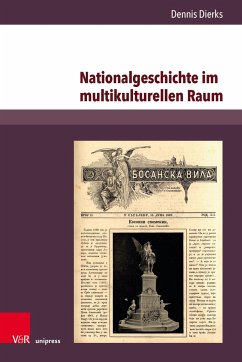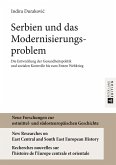Die Nation war das zentrale Zukunftsprojekt des bürgerlichen 19. Jahrhunderts. Als Disziplin wie auch als Genre entstand in diesem Zusammenhang die Nationalgeschichte, die die Ursprünge der Nation in den Tiefen der Vergangenheit aufspüren und Ansprüche auf Menschen und Territorien legitimieren sollte. Zugleich produzierte sie einen Bildervorrat, der, durch Schule und Festtagskultur popularisiert, zur Basis politischer Kommunikation wurde. Doch wie passte sich eine so beschaffene Nationalgeschichte einem Umfeld an, das in hohem Maße durch Multikulturalität geprägt war und sich durch eine Pluralität konfessionell geprägter Erinnerungsgemeinschaften auszeichnete? Dieser Frage geht die Studie - die bürgerlich-serbische Erinnerungskultur in den Mittelpunkt rückend - für das habsburgische Bosnien-Herzegowina nach. Nation-building was the core political project of the bourgeois 19th century. It went along with the rise of national history, both as a new discipline and genre. Its general task was to trace back the origins of the imagined communities deeply into the past, and by doing so to legitimize the political claim of people and territory. National history produced an inventory of images, which became the basis for political discourse. But if constructed this way - how did national history adapt to an environment that was thoroughly marked by multiculturality and plurality of memories? The study investigates this issue, focusing on Habsburg Bosnia-Herzegovina and specifically on the bourgeois remembrance culture of the Bosnian Serbs.
Hinweis: Dieser Artikel kann nur an eine deutsche Lieferadresse ausgeliefert werden.
Hinweis: Dieser Artikel kann nur an eine deutsche Lieferadresse ausgeliefert werden.








